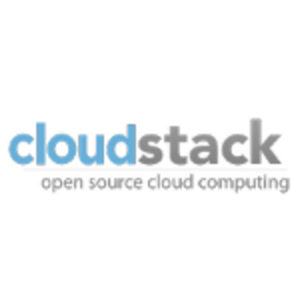If you don’t like the weather in Missouri, wait 10 minutes – it’ll probably change. Likewise, if you don’t like the way that the Cloud industry is aligned, just give it a little time. It’ll probably change, too. The latest shift? Citrix is set to propose CloudStack to the Apache Software Foundation (ASF) as an incubator project.

Let’s take a look at some of the things going on in the industry recently. Despite an initial lack of enthusiasm, Red Hat has been chipping in pretty heavily to OpenStack. Amazon has tapped Eucalyptus as its partner for private (or as they say “on-premise”) clouds. Now, Citrix is relicensing CloudStack under the Apache Software License and proposing it to Apache as a project. This means that Citrix will be offering the code and trademark, though Apache is not required to keep the project name.
Apache in a Nutshell
It’s important to understand how Apache works. A company can propose a project, but Apache doesn’t have to accept it. If a project is accepted, it starts in the Apache Incubator – even if the project is far along technically. The point of the incubator is as much about a project fitting Apache culturally and following Apache processes as it is about the project’s technical status. It also means moving a project over to Apache’s infrastructure.
However, it’s usually a pretty good bet when a company proposes a project to Apache that it will be accepted. That’s, at least in part, because companies usually talk to the Apache folks long before making the public proposal. And so it is with CloudStack.
Mark Hinkle, director of community at Citrix Systems, says that the company talked to Apache about the project ahead of time, and the Apache board seems to be behind it.
Why Apache?
What’s the rationale for the move? It’s estimated that Citrix paid about $200 million for Cloud.com (the company that initially developed CloudStack) just last year. So Citrix must expect some pretty returns for handing over CloudStack.
For one thing, Citrix is hoping for more contributions to the project. One of the motivators of moving is so that CloudStack won’t be a “one-man show” anymore. CloudStack is open source, but it’s not getting a lot of traction from developers.
If that’s the goal, it’s (kind of) working already. Hinkle says that they’ll also be announcing “50 to 60” companies that will be participating in CloudStack development at Apache. Engine Yard, for example, plans to join in with the project now that it’s moving. Engine Yard CEO John Dillon says that the company will be adding CloudStack to its infrastructure options.
The relicensing also factors in to the move. The ASF requires that projects be licensed under the Apache License, and Hinkle says that benefits CloudStack. Hinkle says that a lot of companies have problems with the GPL, especially the GPLv3 and its language around patents. There is a lot of demand for BSD/Apache-type licensing, which puts little requirements on companies and allows for proprietary relicensing.
Being under the Apache umbrella, says Hinkle, means that companies will feel more confident committing to being part of the CloudStack project. The company could try to do its own foundation for CloudStack, but Hinkle says “it’s really hard to do your own foundation.” This is demonstrably true, given all the hassles that OpenStack has had in trying to form its own foundation.
As an added benefit, Apache is a known quantity. Says Hinkle, “Apache is a proven governance model. It’s legitimate, attracts a high caliber of developer – people understand the Apache Foundation… Why recreate the wheel?”
Some companies, say Oracle, turn to Apache when they no longer want to be responsible for a project like OpenOffice.org. But according to Hinkle, if anything, Citrix is going to be upping its investment considerably in moving to Apache. In addition, Citrix will step up as an Apache Platinum Sponsor to help offset the costs of managing CloudStack and integrating it into Apache.
What This Means
CloudStack has its share of real-world deployments and is probably a bit ahead of OpenStack in terms of features and maturity. But it’s had less attention and participation than OpenStack. Going to Apache helps even the scales a bit and could make CloudStack an attractive project for corporate contributions to use, once it’s no longer directed by a single corporation.
Choosing a license that’s more in line with the companies that are likely to deploy and contribute to CloudStack makes sense. Putting the code in the hands of a foundation that’s widely trusted, even moreso. I suspect that this will be a big boost for the CloudStack project and community.

















